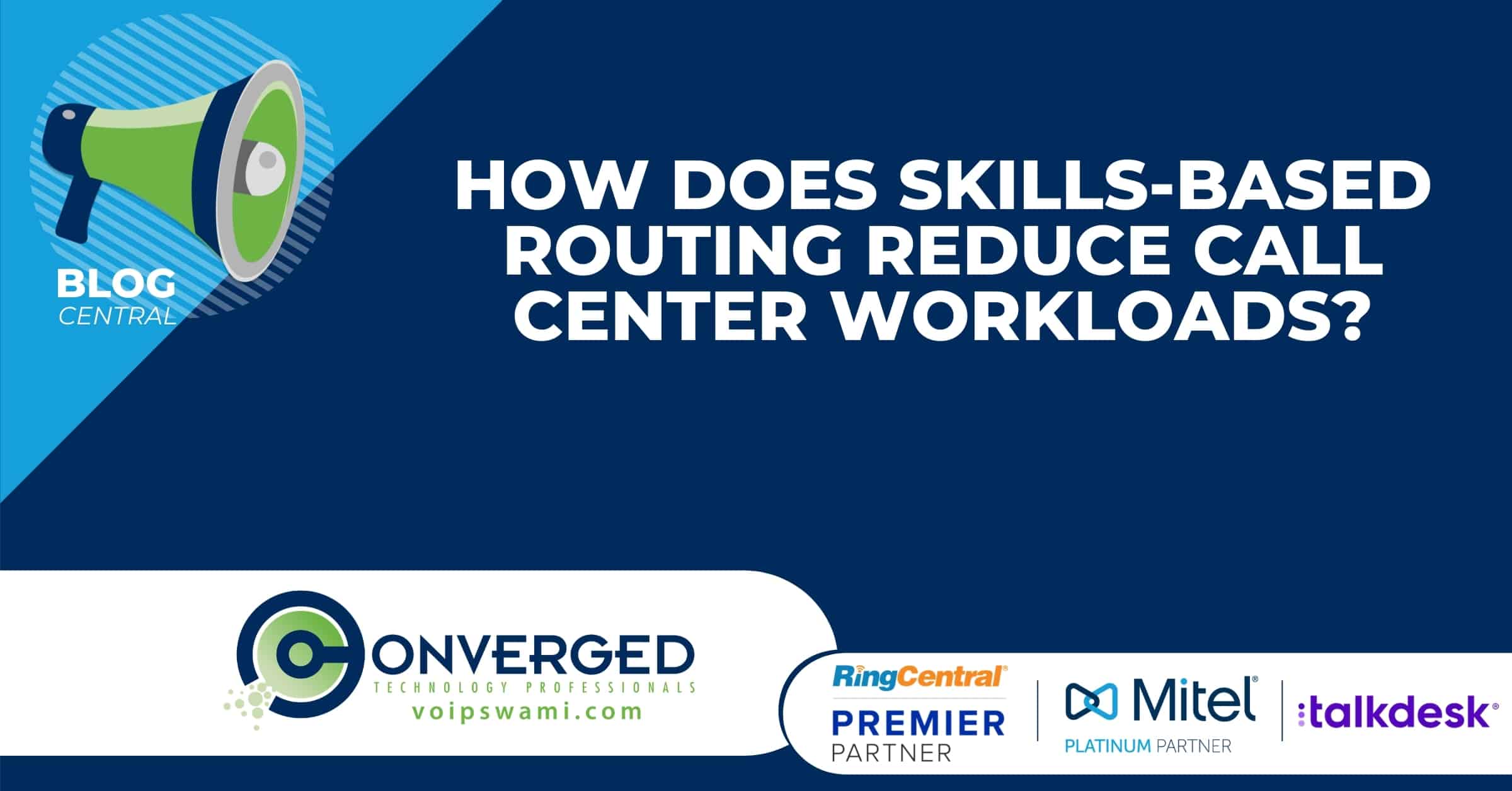
In a world where customer experience means everything, brands need all the help they can get in delivering exceptional and personalized customer interactions. In fact, the top reason why customers switch brands is that they feel unappreciated. Their biggest frustration? Not being transferred to the right person who can help during their first interaction. One survey reported that 89% of customers get frustrated when they have to repeat their questions to multiple customer service agents.
Being passed from customer service agent to the next is not only frustrating for the customer, but it can also cause a serious drain on your resources too. Productivity and morale will go down, average handle times will go up, and workloads will become unbalanced or unmanageable during high call volumes.
To mitigate these risks, companies need to effectively link the customer’s issue with the skills needed to solve it. One powerful tool that can be used to do this is skills-based routing. This routing system is a smart call-assignment strategy that engages customers at the beginning of the call so they can experience a more speedy and personalized interaction with the agent.
What is skills-based routing?
Skills-based routing is a strategy used in call centers to assign customer calls to the most suitable agent. Unlike traditional routing, which uses an automatic call distributor (ACD) to route a call to the next available agent, the skills-based routing system uses an interactive voice response (IVR) dialer system to match menu options to agents with matching skill-sets.
How does skills-based routing work?
The IVR guides the caller through a series of menu items to categorize their concern. The skills-based routing system then uses those criteria to match the customer to the agent with the most appropriate skill-set.
A simple example of this process is when a customer chooses the menu option to speak to a Spanish-speaking support specialist. The routing system then transfers the call to an agent with Spanish as a defined skill-set. The system can also be used for more complex issues, like ensuring a person who needs help fixing a tier 3 technical issue is transferred to an agent that is skilled in that level of support.

What are Some Skills-Based Routing Benefits?
To get the most out of skills-based routing, companies will need to spend time establishing the rules and workflows for agent teams and skill-sets. Systems like RingCentral and TalkDesk help streamline the process with user-friendly interfaces and simplified processes.
Once the routing is set up, businesses can expect to see improved customer satisfaction, shorter hold times, and speedier resolutions on the first call. This is because skills-based routing creates a number of efficiencies and opportunities across call center operations that will increase ROI as time goes on. As routing processes are refined over time, efficiencies will continue to grow.
1. Reduce the need for training
No more blanket training agents on all the same skills. Skills-based routing lets you leverage the skills and training that each frontline staff member already has. For example, companies are able to divide their team up into a number of specialists for any specific challenge, from technical types to product specialists. Customers will also appreciate being routed to the right agent on the first call to solve more complex issues.
2. Identify more targeted training opportunities
With skills-based routing, you’ll quickly see where there are gaps and unbalances in workload. If an influx of calls has one specialized team scrambling to keep up while another group is left to reorganize their desk for the 6th time, then you have a wonderful opportunity to up-level your team of agents.
Idle time is a great time to coach and micro-train agents who aren’t bogged down by high call volumes. That way, the next time one team gets swamped, they’ll have cross-trained teammates that can step in and help serve more customers faster.
3. Improve productivity and vital KPIs
Not only will agents see their average handle times (AHTs) drop dramatically, they’ll be able to help more customers than ever before. And because the agent was a perfect fit for the customer’s needs the first time, first call resolution scores (FCR) will also improve.
What are Some Skills-Based Routing Best Practices?
Before you get started on your skills-based routing strategy, here are three top best practices to keep in mind.
1. Balance Call Distribution
Don’t rank calls based on skill alone. Doing so creates the risk of overworking specific agent teams which can lead to burnout, unsatisfied customers, and a backlogged queue. To mitigate this risk, you’ll want to set up your skill list’s priority rules as an added fail-safe and combine other distribution strategies that benefit your team.
2. Align Agents to Your Customer’s Journey
Use your CRM to its fullest potential. When you consolidate customer data across multiple communication channels, you can create and assign skills based on customer information, interaction history and many other factors.
3. Monitor and Make Improvements
Use analytics and call monitoring tools to track agent performance and productivity, and ensure your KPIs are steadily improving. Don’t be afraid to tweak your strategy to find better combinations of skills and priority rules. With the right workflow and mapping, you should see a more productive team and happier, long-lasting customer relationships.
Want to see what skills-based routing and other cloud communication technologies can do for your organization? Contact us today to find out which solutions are the ideal fit for your call center.
If you enjoyed this article you may also enjoy:
